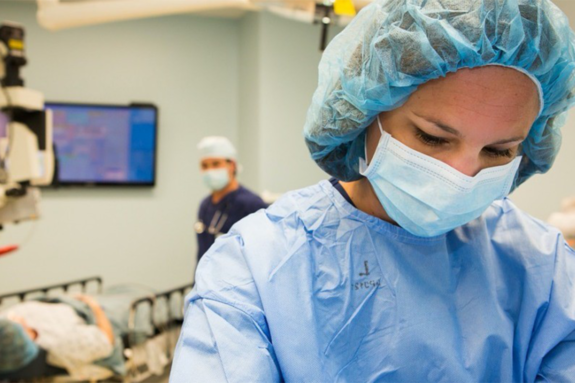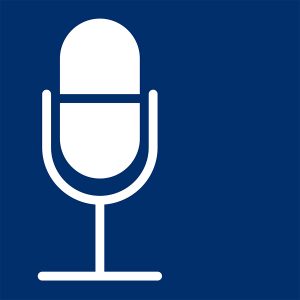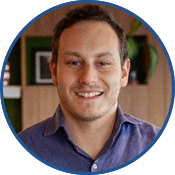
20 Jul Supporting Health Worker Mental Health: Podcast with Vitalk in Brazil
 This is the second in a series of podcasts recognizing the winners of the HRH2030 Health Workforce Resilience Prize. See the prior podcast here.
This is the second in a series of podcasts recognizing the winners of the HRH2030 Health Workforce Resilience Prize. See the prior podcast here.
Audio interview with Michael Kapps, CEO & Founder, Vitalk (Running time 10:06)
 On June 24, 2020, HRH2030 presented Vitalk (formerly known as TNH Health) with the Health Workforce Resilience Prize for their app, Vitalk. HRH2030 Communications Manager Catarina Cronquist takes a moment to speak with Vitalk’s Founder and CEO Michael Kapps (pictured) to hear about their prize-winning innovation and their plans for scaling-up the product.
On June 24, 2020, HRH2030 presented Vitalk (formerly known as TNH Health) with the Health Workforce Resilience Prize for their app, Vitalk. HRH2030 Communications Manager Catarina Cronquist takes a moment to speak with Vitalk’s Founder and CEO Michael Kapps (pictured) to hear about their prize-winning innovation and their plans for scaling-up the product.
Please tell us about your prize-winning organization.
Vitalk is a company based in Brazil. We are specialized in creating AI-powered health care chat bots, also known as virtual health assistants. We’ve been using them in a number of different areas from monitoring pregnancies, to now working with the Ministry of Health of Brazil to fight the coronavirus epidemic. We spend a lot of time focusing our energies—and actually our focus now is in the area of mental health and resiliency, and that’s where our product Vitalk came about.
Could you please tell our listeners about Vitalk, your prize-winning tool for strengthening resiliency in the health workforce?
Vitalk is a solution that we designed to address the very large mental health treatment gap that we have in Brazil, in particular, but also in Latin America and other countries in the world. Basically, Vitalk is a mental health chat bot. It’s a kind of a personal assistant or personal psychologist in the form of a smartphone app. There’s a version which is free and there’s a version which is paid. But, basically, the version that’s free—that hundreds of thousands of people are using—includes validated mental health assessments and self-care programs. These consist of some psychoeducation, some mood tracking, and a number of evidence-based interventions. Everything is delivered in a conversational format with a chatbot whose name is Viki. All content is written by a highly trained clinical team that have also included audio exercises and, as I mentioned earlier, an option to actually converse via chat with a licensed psychologist which is a fifth of the price of traditional therapy in Brazil, so it’s a lot more accessible.
Our whole idea is that we can use this app to overcome some of those traditional barriers of accessing mental health because we’re offering something that’s free, that’s anonymous, it doesn’t have that stigma, and it can be used anytime and anywhere.
What we did was we actually—even before the Covid epidemic—were working actively on adapting our tool for health care workers because we know that there is a big demand for this kind of service for resiliency support in this specific population. So we adapted the content and we worked with nurses who are working in the public health care system and when Covid hit, we accelerated this and added conversations around health safety strategies to manage anxiety and guilt, which is something that these health care workers will face. We even had to add content on domestic violence, for instance, as this is something that is unfortunately very prevalent in this group.
The idea behind this app is that by interacting with Vitalk, health care professionals can improve their mental health and resiliency. And, not only will they improve at an individual level but organizations—whether it’s a public or private health care system or hospital—can actually get the data in an aggregated level and they can understand what’s going on, what’s driving these mental health issues, so they can make some systemic changes to improve the resilience of health care workers in the medium and long run. That’s a little bit about how it works.
Has Vitalk shown results? Can you explain how it is proven to strengthen resiliency in the health workforce?
A lot of people ask, “can an app actually help you out?” I think there’s a lot of debate around that, but what we’ve been doing is, in our most recent analysis which we did at the end of last year [December 2019], we actually were able to show a reduction in symptoms of anxiety, depression, and stress by about 30 percent over an eight- to 12-week period. We actually assessed [the effectiveness] using real clinical instruments such as the GAD 7 and G9 RS 14 scales which can measure improvements, changes in some of these common mental health disorders. Now, we also found that a significant portion of people moved from clinical levels of anxiety and depression to non-clinical levels. This was really exciting for us.
We found another interesting aspect which was the more that people interacted with the app, the more their symptoms reduced. We know that this has a direct impact on resiliency levels. These are obviously initial results. There are different biases that we need to get rid of even though we had very large sample sizes and we were able to control for a lot of factors. We are a start-up, we are working hard, but we are actually in the process of running a randomized control trial to really evaluate Vitalk with a control group. As of now, the results are very promising so we’re happy about that.
Now we’re implementing Vitalk in the public health service and the public health system here in Brazil and we’re expanding the app—we have thousands of users. We’ll be very closely analyzing the results, the mental health and resiliency of these health care workforces, especially now as the pandemic is raging in Brazil, and try to see if we’ve been able to help at least thousands of people.
With this HRH2030 prize, what are your plans to scale up your approach and its reach—what are your next steps for the year ahead?
First of all, we’re really just so happy to win this prize. It’s a really big validation for us and our team, for our stakeholders, as it’s something that we’ve been working on for so long. The good thing is we do have a plan already in place. We’ve been working closely with the Johnson and Johnson Foundation. Our goal is actually to reach 20,000 frontline health care workers—primarily nurses and community health care workers—by the end of this year. That’s a lot of people so we’re really hoping to use this prize to give us that ability to really include all health care workers, all specialties, adapt our product to reach all types of specialties and in all regions of Brazil. Brazil is a big country. We have the Amazon region in the north all the way down to the south so it’s a very large region and so we want to make sure that we can reach these people; that the content is adapted to them; and that we can ensure the most usability of it. We have many adaptations and customizations in every single health care system that we work in, so this prize will really give us a capillary to help us reach that 20,000-health care worker goal. To do that we’ll be adding more content, we’ll be improving the user experience, we’ll be looking a lot at more of our data to make sure that it’s better. We use a lot of artificial intelligence, so the more and more people use it the better it becomes, simply speaking. We are setting ourselves up to hopefully translate parts of the app into Spanish because we really think there’s a big opportunity in Latin America and even Spanish-speaking U.S.
I think this prize has a tremendous number of resources. It’s also a huge validation for us, and gives us credibility as we try to grow and build partnerships with these organizations so we can take our innovations to other health care organizations around the world and improve the resiliency of more health care workers.
Photo: A health worker at work in Brazil. Credit: Vitalk.





